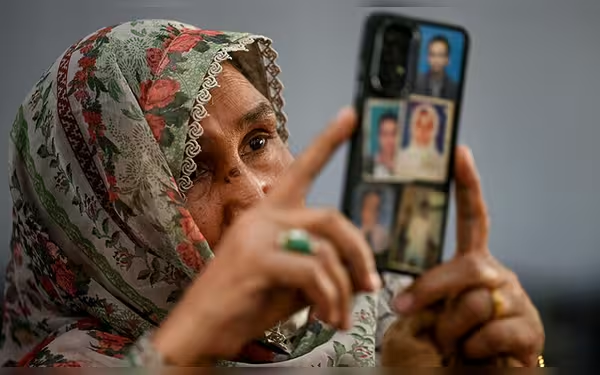Saturday, November 16, 2024 05:50 PM
Rise of Vigilantism in Pakistan's Online Blasphemy Cases
- Surge in online blasphemy cases due to vigilantes.
- Fear among youth sharing content online.
- Legal Commission prosecuting over 300 blasphemy cases.
 Image Credits: dawn.com
Image Credits: dawn.comPakistan faces a rise in online blasphemy cases driven by vigilantes, creating fear and stifling dialogue among youth.
In recent years, Pakistan has witnessed a troubling surge in online blasphemy cases, largely fueled by the actions of self-appointed vigilantes. These individuals and groups have taken it upon themselves to monitor social media and messaging platforms, seeking out content they deem blasphemous. This has created an environment of fear and anxiety, particularly among young people who may inadvertently share or engage with such content.
One poignant example is the case of a mother, Khan, who shared her distressing experience with the media. She revealed that her son, whose identity remains undisclosed for safety reasons, was deceived into sharing what was labeled as blasphemous material on a messaging app. This incident highlights the precarious situation many individuals find themselves in, as the line between innocent sharing and serious accusations can be alarmingly thin.
The Legal Commission on Blasphemy Pakistan (LCBP) has emerged as one of the most active groups in this arena, currently prosecuting over 300 cases related to online blasphemy. Their efforts reflect a broader societal trend where individuals feel empowered to take justice into their own hands, often without a clear understanding of the legal implications or the potential consequences for those accused.
This rise in vigilantism raises significant concerns about freedom of expression and the safety of individuals in Pakistan. The fear of being targeted for sharing content, even unintentionally, can stifle open dialogue and discourage people from engaging in discussions about sensitive topics. It is essential for society to strike a balance between respecting religious sentiments and protecting individual rights.
As the situation continues to evolve, it is crucial for the government and civil society to address these issues head-on. Education and awareness campaigns could play a vital role in informing the public about the legal boundaries surrounding blasphemy and the importance of responsible online behavior. Ultimately, fostering a culture of understanding and tolerance is key to ensuring that the rights of all individuals are respected, while also maintaining the sanctity of religious beliefs.













